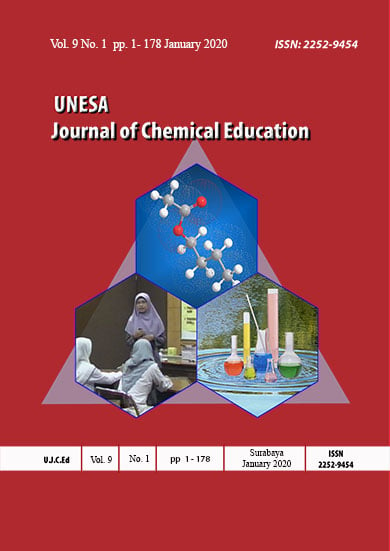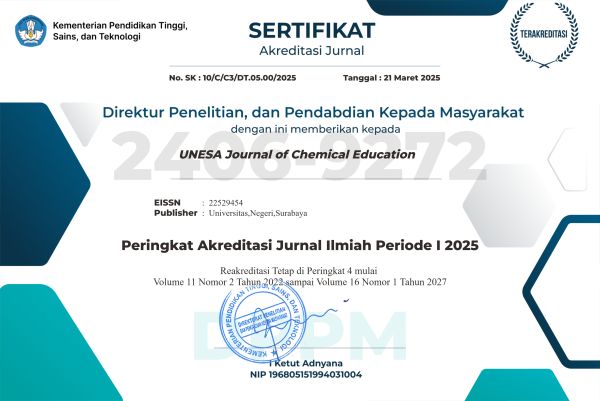PENERAPAN MODEL PEMBELAJARAN INKUIRI TERBIMBING UNTUK MENGASAH KETERAMPILAN BERPIKIR KRITIS PESERTA DIDIK PADA SUB MATERI FAKTOR FAKTOR YANG MEMPENGARUHI LAJU REAKSI KELAS XI SMA NEGERI 2 BANGKALAN
DOI:
https://doi.org/10.26740/ujced.v9n1.p148-157Downloads
Downloads
Published
Issue
Section
License
The license terms of the Creative Commons Attribution-NonCommercial 4.0 International (CC BY-NC 4.0) requires attribution to the original creator, permits non-commercial use, and does not allow for the application of legal or technological restrictions on others' use.
 Abstract views: 186
,
Abstract views: 186
, PDF Downloads: 164
PDF Downloads: 164













